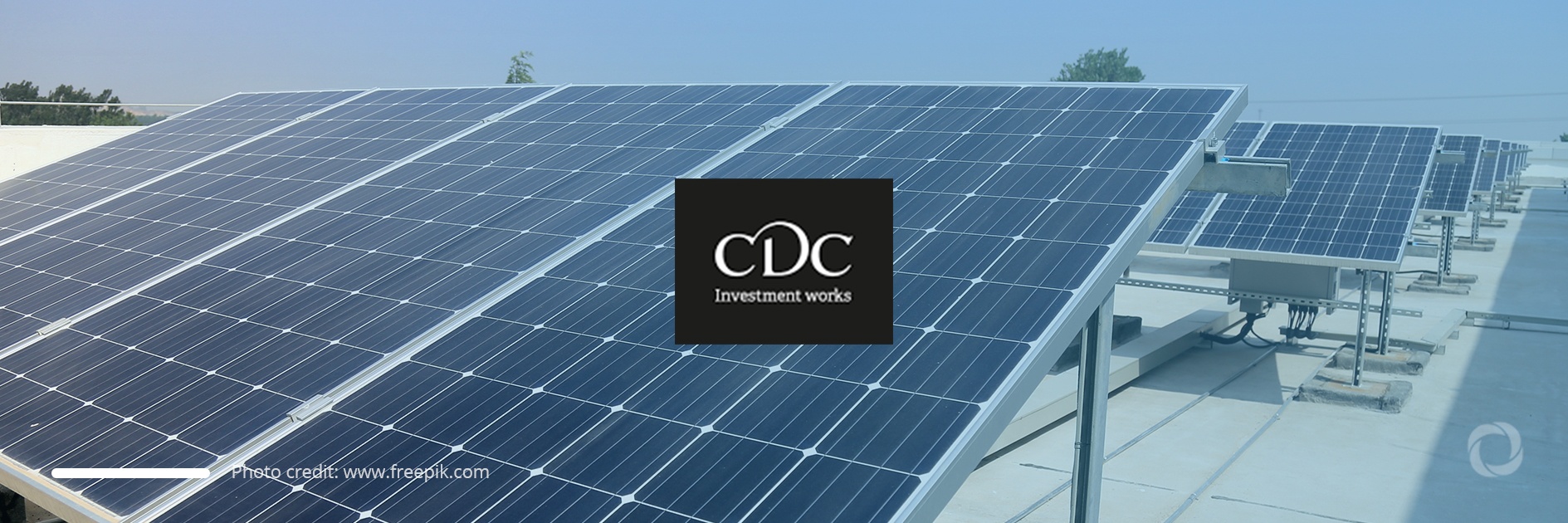CDC Group, the United Kingdom (UK) ‘s s development finance institution, has announced that it will invest up to US$1 billion in climate funding in India over the next five years (2022-2026). The commitment aims to support climate change mitigation projects and businesses and enhance national efforts to align with the Paris Agreement as part of CDC’s Climate Change Strategy to invest in climate mitigation, adaptation, and resilience.
“The announcement made as part of the 11th Economic and Financial Dialogue (EFD) between the UK and India, targets to fund climate businesses and climate-mitigating initiatives in India over the next five years,” the CDC Group statement released on September 2 reads.
The decision builds on CDC’s existing US$1.99 billion portfolio in India, further demonstrating the Group’s commitment to help mobilize and accelerate climate investment in the country, it added.
Meanwhile, the British Chancellor, Rishi Sunak, and Indian Finance Minister, Nirmala Sitharaman, hosted the EFD to announce the launch of the Climate Finance Leadership Initiative (CFLI) India partnership.
Stating that India is already taking impressive action, including through the 450GW renewables target, Alex Ellis, British High Commissioner to India, said that increasing the flows of finance, both public and private, into green projects ahead of the UN Climate Change Conference (COP26) in Glasgow and beyond would be the last best chance to set the world on the path that will limit global warming to 1.5 degrees.
For his part, Srini Nagarajan, Managing Director and Head of Asia at CDC, highlighted that CDC recognizes the scale of climate action needed to address the complex risks already felt by businesses and communities across India.
“We are pleased to be making this commitment to help accelerate transformative climate resilience and adaptation. CDC remains committed to fostering a stronger partnership with India and channel our patient and long-term capital toward innovative projects that will boost green and inclusive growth,” he said.
CDC’s climate finance in India
- CDC has a strong track record of making long-term investments that support green growth and promote climate resilience and adaptation in India.
- In order to develop utility-scale solar and wind generation projects, it founded Ayana Renewable Power in 2018.
- CDC’S US$100 million commitment to date has helped to mobilize further capital to accelerate green energy capacity for India’s long-term economic development.
- It is currently constructing 500MW of solar generation capacity with a strong future pipeline of renewable energy opportunities.
- An investment in CropIn supported digitized farm management processes to enhance local farmers’ ability to meet the challenge of climate change and increased their income by 25% in the first year of using the technology.
- A US$30 million pioneering program directed green lending facility to Tata Cleantech Capital to enhance water and energy efficiency and to reduce greenhouse gas emission in India.
- Similarly, it made a commitment of US$10 million in direct investment in Roserve to support wastewater treatment and increase water efficiency across the country.
CFLI partnership
- CFLI focuses on private sector financing of sustainable infrastructure projects in specific low-carbon sectors in India.
- CFLI India seeks to reinforce international investor confidence in India’s low carbon transition, opening access to rapidly growing offshore pools of sustainable capital.
- It supports India’s ambition of meeting its nationally determined contribution (NDC).
- To catalyze sustained private investment at scale, it will directly mobilize capital through existing or new equity financing vehicles, co-created with local stakeholders and tailored to India’s market needs over the life of the CFLI India.
- It also aims to advance public-private collaboration by partnering with the Government of India and multilateral development finance institutions.
While the adverse effects of climate change are already evident around the world, the climate-risk factors for emerging economies such as India are disproportionately high. India is expected to see an increase in the frequency and intensity of heatwaves, cyclones, and water stresses such as floods and droughts by three to four times by the end of the 21st century.

